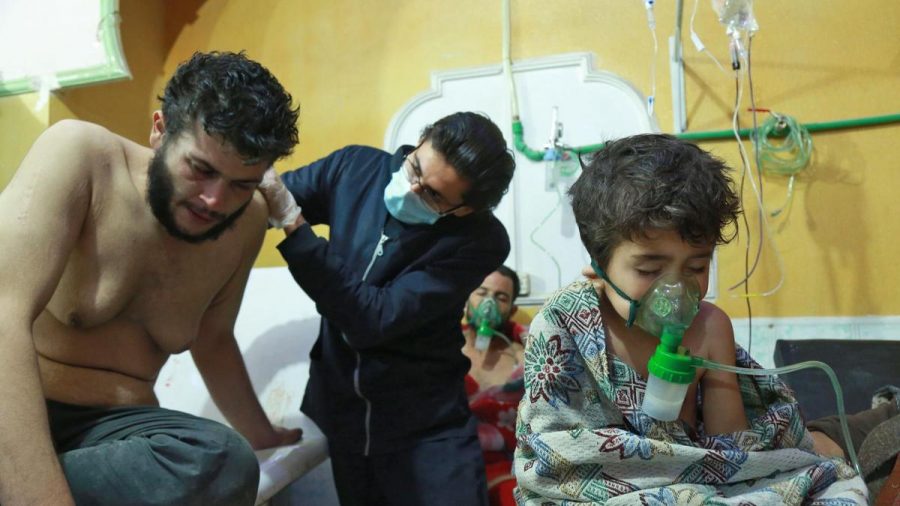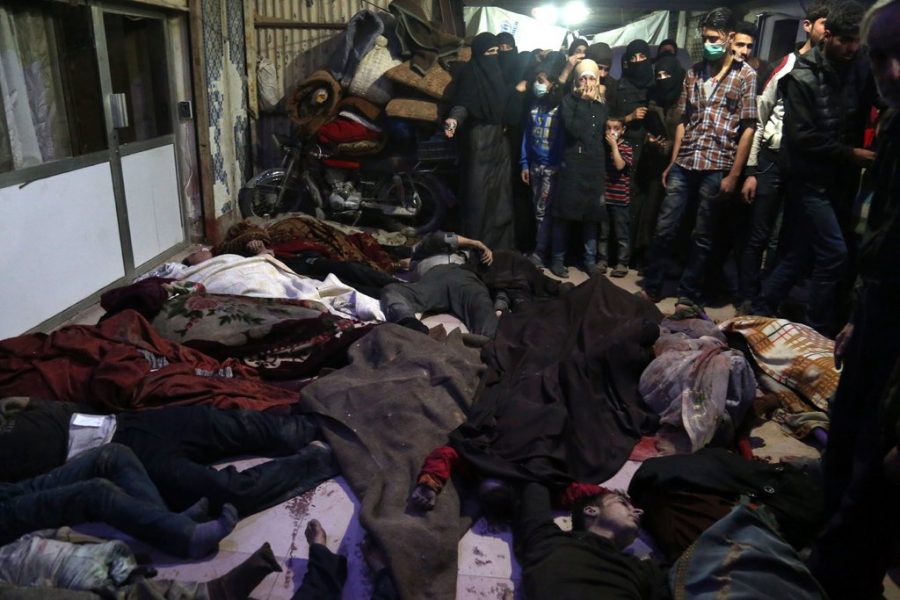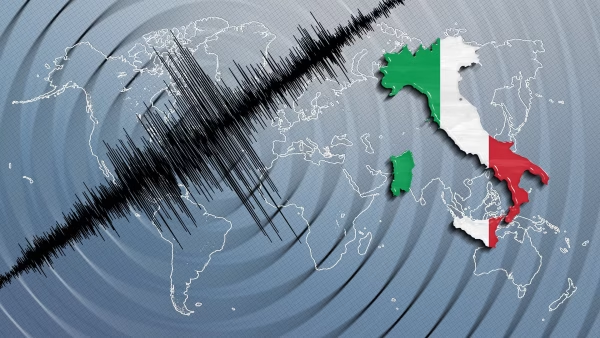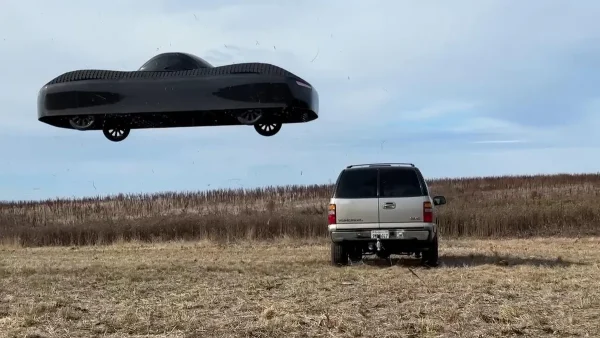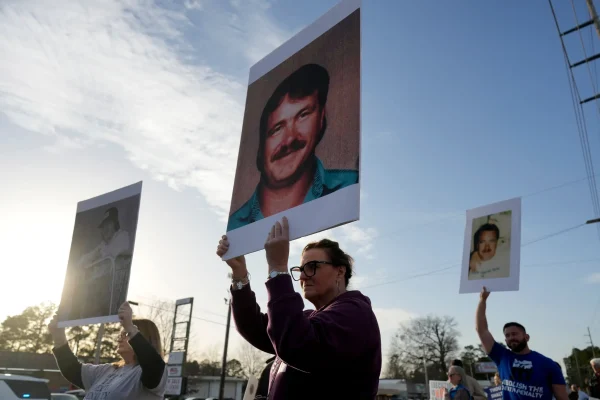The world still waiting for answers in the Syrian chemical attack
On Saturday, April 7, 2018, the suburb of Douma in Syria was presumably attacked with chemicals that poisoned about 500 people, mostly children. An estimated 70 deaths resulted. The attack has not, though, been officially confirmed, and the UN has not yet determined responsibility for the attack.
During the attack, which occurred at dusk, residents showed “symptoms consistent with a chemical attack,” according to The New York Times. This included breathing troubles, burning eyes, and foaming from the mouth and nose. Residents reported hearing “objects falling” and a “strange smell” that a few compared to chlorine.
President Bashar al-Assad denied the use of chemical weapons, as did Russia–Syria’s ally. They are blaming rebel groups and believe the attack may have just been “staged,” according to ABC News. But Syria does have a history with chemical weapons that began in August of 2013. Another chemical attack April 27, 2017 killed dozens.
Some people believe that Russia planted or supplied the bomb. Russia has not responded to the allegations of their aircraft dropping off poisonous bombs.
According to BBC News, President Trump tweeted about the situation, saying, “Russia vows to shoot down any and all missiles fired at Syria. Get ready Russia, because they will be coming, nice and new and smart! You shouldn’t be partners with a Gas Killing Animal who kills his people and enjoys it.”
The U.S., France, and the U.K. plan to work together by sending military forces to help Syria. Sources have speculated the possibility that another attack could result in world war. BBC News implied that if another attack occurred, the military would be ready. BBC news reported, “A US Navy guided-missile destroyer, the USS Donald Cook, is in the Mediterranean Sea.” They also noted that their sources noted that “Prime Minister Theresa May looked ready to join military action in Syria without seeking parliamentary consent first.” BBC also reported that French President Emmanuel Macron said “any strikes would target the Syrian government’s ‘chemical capabilities’ .”
In the days following the attack, Syria did not permit access to the site in Douma. Journalists or aid relief workers were not allowed in.
On April 21, experts finally collected samples from Douma in order to confirm that this was a chemical attack. The UN is continuing to investigate.
